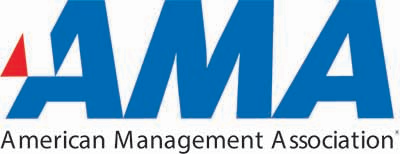Professional Partner Content
IP Learning Content Licenses—Not All Are Created Equal
Published Tue Jul 16 2019
By K.C. Blonski and Bruce Marks
“Time is the friend of the wonderful business, the enemy of the mediocre.” —Warren Buffett
In today’s ever-evolving business environment, organizations understand that change is the norm and time is a precious commodity. We know that sounds cliché, but as Warren Buffett said, organizations that adapt quickly and execute effectively succeed.
To do that, companies are now looking to their learning organizations to facilitate the skill development of their people in ways that support the timely execution of business imperatives and accelerate the development of high-potential talent. Today’s learning organizations are dealing with:
waves of transformation as business partners demand more innovative ways to develop their teams
a workforce that is creating greater demand for learning programs that are personalized and “just in time,” with more engaging learning content
an environment in which everything is moving quicker, with internal “patience” as a thing of the past.
With all of this, learning teams face their own challenges of keeping up with the constant change in their organizations. Learning and development teams continue to shrink; their team members are spread too thin; and budgets are constantly being scrutinized for a tie to business impact. This means that L&D has to become more business savvy regarding their own organizations and the industries they serve to be able to focus on the projects that will make a difference. And, they need to take advantage of innovation in the L&D space to get the job done quickly and successfully.
In recent years, training companies have begun offering licenses to their content and services to allow customers the ability to manage their own training initiatives. They usually market licenses as a way to maximize budget while providing access to a rich library of content. They talk about how their IP is based upon research and tested, and how using it shortens implementation time from costly internal content development. However, many of these licenses come with certain parameters that may not be equal to the needs of those purchasing them. Many training vendors use terms such as “all-access,” “library-access,” or “enterprise license” to describe their offerings and give customers a false sense of openness. Many of these licenses are concentrated on a single content focus, have term limits that prevent true reinforcement and installation of the necessary skills with limited content and modality access, or include costly services that organizations won’t use in their people development strategies.
Before purchasing a license, learning organizations need to ask themselves three questions:
Does the license include both soft and hard skill content that provides the appropriate skills necessary for my teams to execute on today’s critical imperatives and tomorrow’s changing priorities?
2. Does it provide the flexibility and multiple modalities that allow for the development of individual learning paths, reinforcement, and sustainable strategies?
3. Does it offer the opportunity to select the services and support needed to help implement and engage with my learning audience to successfully install the necessary skills and behaviors?
Learning organizations of today have their hands full. They must do more with less and work with their business partners to diagnose learning needs and provide flexible and immediate solutions to support skill development at all levels in their company. Identifying the right license that answers all the questions above positively will provide learning professionals with the right stable of tools to afford them the time to develop the human capital of their organization in a way that makes it a “wonderful business.”
K.C. Blonski is vice president of sales, corporate learning solutions for American Management Association (AMA).
Bruce Marks is senior vice president of sales and business development for American Management Association (AMA).

